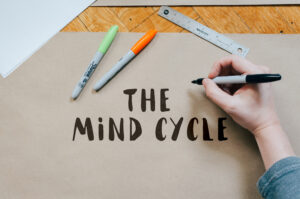
What is Happiness?
What is happiness? Can you define it? Take a moment — think through this question very carefully. Because your entire life could be affected by it!
To some people, happiness comes from material objects. To have money, a comfortable home, a satisfying career, a healthy body, and surrounded by friends, family, and loved ones. To others, happiness is intangible: it may come from emotions that us humans are able to experience. It might come from the kindness that they experience in their life, or the burning passion and desire to chase their dreams.
If you ask a psychologist, happiness is defined in many ways, too. It might be a feeling of intense joy in the current moment, or it could be the case that one feels free from negative emotions, or it could also mean a feeling of satisfaction with life and well-being as a whole.
And in the dictionary, the word happiness is defined as “well-being and contentment”. Can we all say that we are content and therefore are we happy?
Thus, there is no single source of definition for happiness.
“Happiness is like a butterfly, the more we chase it the more it will elude you, but if you turn your attention to other things, it will come and sit softly on your shoulder”
Henry David Thoreau
Running up that Hill
In psychology, there is a concept known as the Hedonic Treadmill. This theory says that when humans gain more possessions, such as more money, a job promotion, or even a new smartphone, our expectations also rise. Thus, there may not even be a significant rise in happiness, since we expect more from our new standard of living.
Nevertheless, we still hear stories of people chasing happiness, working hard to achieve their dreams. Could this be counterproductive? Are we just running uphill on a treadmill that constantly brings us backwards?
Your definition of happiness
Knowing that then, perhaps it could be helpful to look at “happiness” from a different perspective. Using ideas from mindfulness, we can instead treat happiness as a level of contentment and satisfaction, rather than something shiny and special that should be greedily chased.
Who — or what — is truly responsible for our happiness? Should the things that make us happy be in or out of our control?
We constantly try to find other people or other things to be the source of happiness. Oftentimes, this means our own happiness becomes out of our own control! Wouldn’t it be better if we had our own definition of happiness, and worked towards that instead?
We would like to end off this post with an incredible story by Gaur Gopal Das. His insight into happiness echoes what we feel – that we should turn our own happiness into our own responsibility. Check it out!
BlankSlate Counselling is here to help anyone experiencing mental health issues. We believe that with care and trusted support, we can build a thriving population that supports mental health in Singapore.
Give us a call at 6698 5198, or send us a message today.



